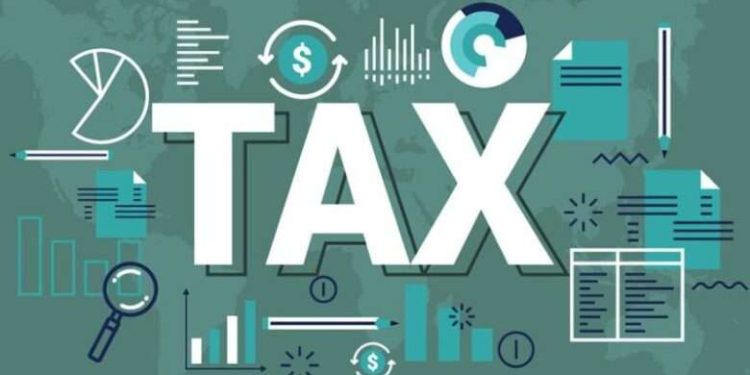Choosing the right business structure is one of the most critical decisions you can make as a business owner. The structure you select not only affects how your business operates legally but also has a significant impact on your tax liabilities. For businesses in Bolton, getting expert advice from local accountants can help you identify the most tax-efficient structure, ensuring you meet your financial goals while staying compliant with UK tax laws.
Here’s a closer look at how accountants in Bolton can guide you in choosing the right business structure for optimal tax efficiency.
1. Sole Trader vs. Limited Company: What’s More Tax-Efficient?
One of the most common decisions new business owners face is whether to operate as a sole trader or form a limited company. Each option has different tax implications.
- Sole Trader: As a sole trader, you are personally liable for your business debts and taxed based on your income through Self-Assessment. The current income tax rates apply, along with National Insurance contributions (Class 2 and Class 4). While it’s a simpler structure with less paperwork, tax efficiency may decrease as your business grows, and your income increases.
- Limited Company: A limited company is a separate legal entity, and your profits are subject to Corporation Tax, which currently stands at 19%. You can pay yourself through a combination of salary and dividends, which is often more tax-efficient. Accountants in Bolton can help you weigh the benefits of this structure, especially if your business is expanding or earning significant profits.
2. Partnerships: Sharing the Tax Burden
If you’re in business with one or more partners, you might consider forming a partnership. In a partnership, profits are shared between partners, and each partner is taxed on their share of the profits. Like sole traders, partnerships are taxed via Self-Assessment, meaning each partner will pay income tax and National Insurance on their share.
An alternative is a limited liability partnership (LLP), which combines the flexibility of a partnership with the limited liability features of a limited company. This means personal assets are protected while still benefiting from the tax efficiency of partnership taxation. YRF Accountants in Bolton can help you structure your partnership to optimize tax efficiency while ensuring legal protection.
3. Using the Flat Rate VAT Scheme for Small Businesses
For small businesses, VAT can become a complicated area of taxation. However, the Flat Rate VAT Scheme is a useful option for many businesses looking to simplify their VAT returns and potentially increase their tax efficiency. This scheme allows businesses to pay a fixed percentage of their VAT-inclusive turnover to HMRC, rather than calculating VAT on individual sales and purchases.
This scheme is available to businesses with a turnover of £150,000 or less, and accountants can determine if this is the right choice for your business, helping to minimize VAT payments and administrative burdens.
4. SEIS and EIS: Tax-Efficient Structures for Startups
If you’re starting a business in Bolton and are seeking investment, the Seed Enterprise Investment Scheme (SEIS) and Enterprise Investment Scheme (EIS) offer significant tax reliefs to investors. These schemes make your business more attractive to potential investors while providing a tax-efficient structure.
Under SEIS, investors can claim up to 50% income tax relief on investments of up to £100,000, while EIS offers up to 30% income tax relief on investments of up to £1 million. Accountants in Bolton can guide you through setting up your business to qualify for these schemes, ensuring both you and your investors benefit from tax relief.
5. Tax Implications of Changing Business Structures
As your business evolves, you might find that your current structure no longer serves your needs. For instance, a sole trader business that’s grown significantly might benefit from becoming a limited company to take advantage of Corporation Tax rates and dividend payments.
Changing business structures can have tax implications, such as capital gains tax on assets or stamp duty land tax (SDLT) for property transfers. Experienced accountants can provide advice on how to make this transition in the most tax-efficient manner, minimizing liabilities and ensuring a smooth transition.
6. Family Businesses: How to Maximize Tax Efficiency
If you run a family business, you may be able to make use of tax-efficient strategies such as sharing ownership among family members or employing family members within the business. By paying family members a salary or dividends, you can potentially reduce the overall tax burden for your household.
Additionally, family businesses might benefit from inheritance tax relief under the Business Property Relief (BPR) scheme, which reduces the taxable value of a business when it is passed on to family members. Accountants in Bolton can help you structure your family business to maximize these reliefs, ensuring that your business remains tax-efficient for future generations.
Conclusion
Choosing the right business structure is essential for optimizing your tax efficiency and ensuring the long-term success of your business. Whether you’re a sole trader looking to scale, a startup seeking investment, or a growing family business, Bolton accountants can offer tailored advice to help you make informed decisions. By selecting the right structure, you can reduce your tax liabilities, protect your assets, and keep your business financially healthy.
For personalized guidance on setting up a tax-efficient business structure, consult with experienced accountants in Bolton who understand both local and national tax laws. They’ll provide the expertise you need to ensure your business is structured for growth, compliance, and success.




![7 Best POS Software in the UK [2026 Edition]](https://todaynews.co.uk/wp-content/uploads/2026/02/7-Best-POS-Software-in-the-UK-2026-Edition-360x180.png)







































































